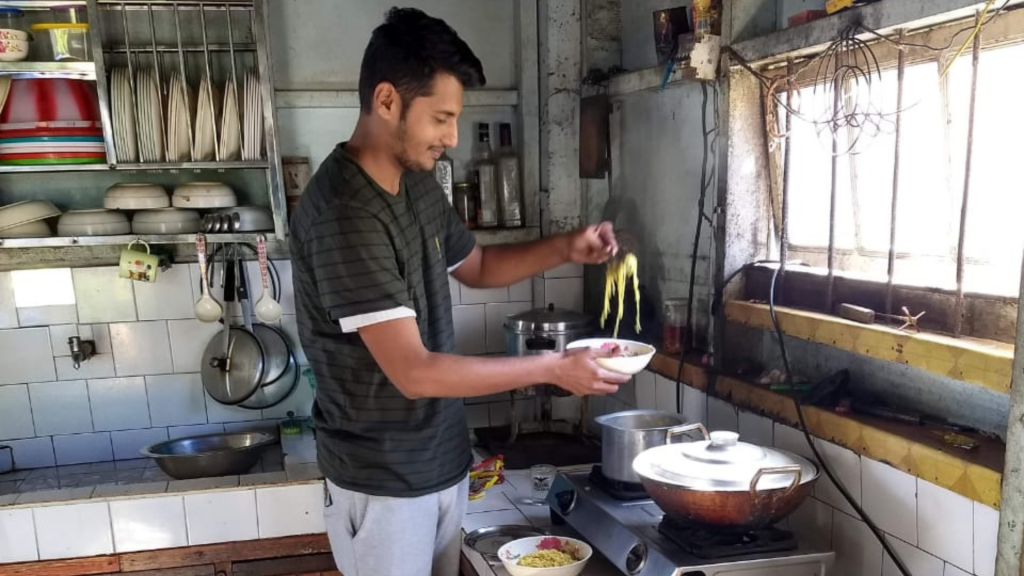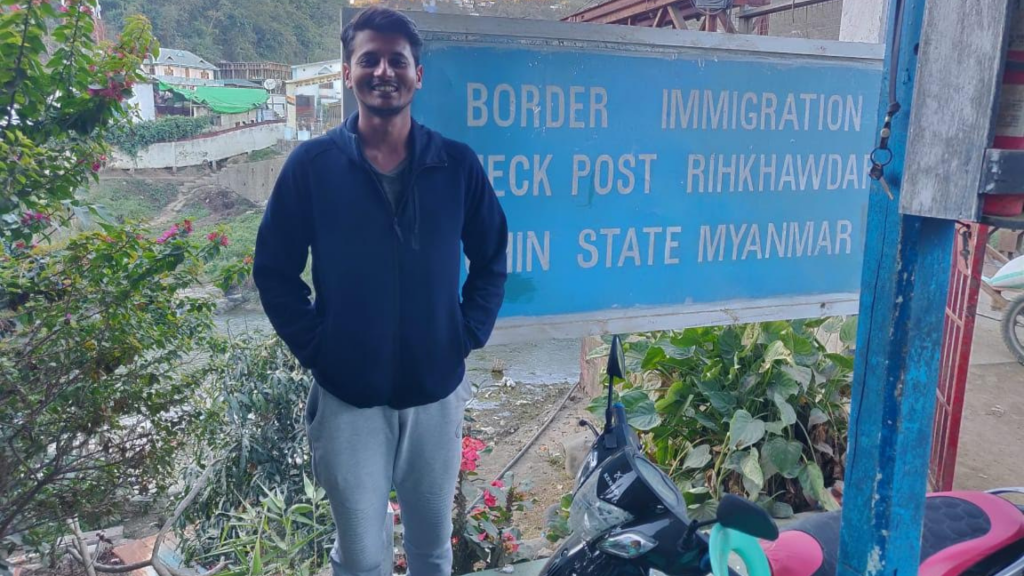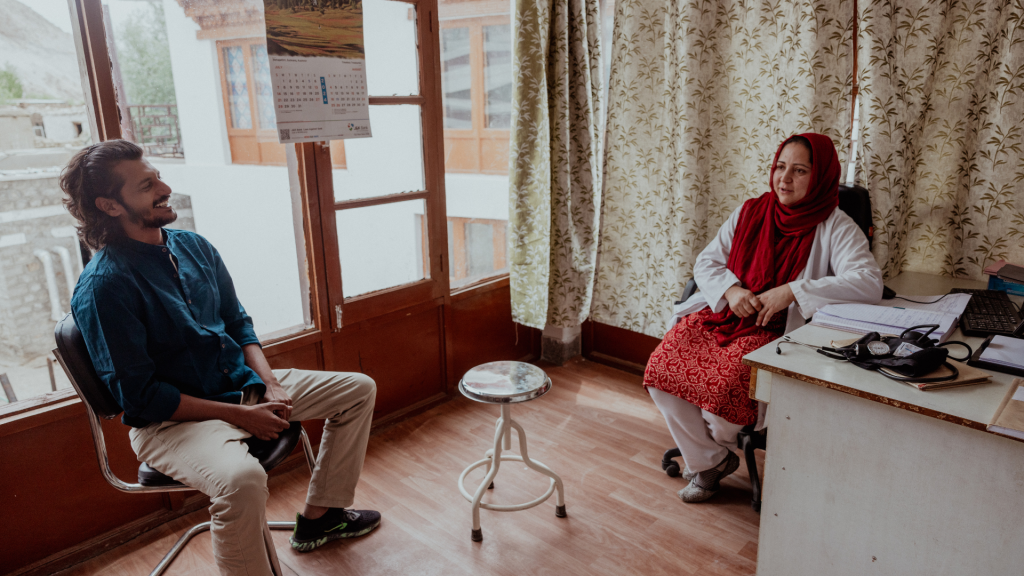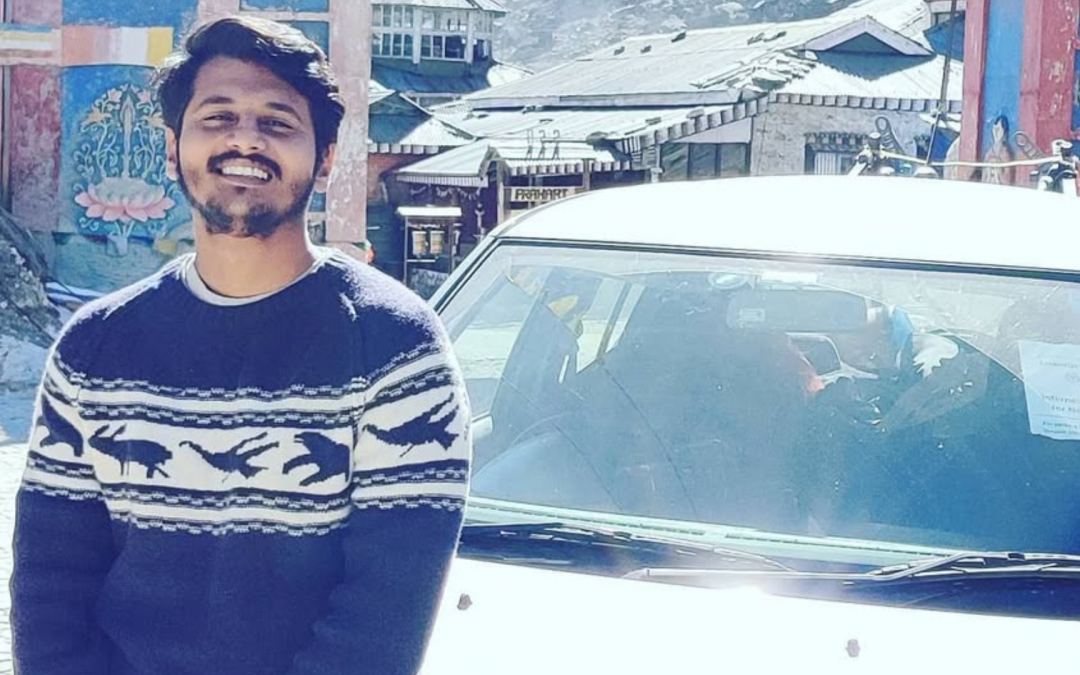Harsh Lodha grew up in South Bombay, surrounded by the city’s old charm and everyday buzz. Like many kids in the area, his days were filled with school, community life, and endless games of cricket. It was a childhood shaped by simple routines and a deep love for the sport. Though he was an introverted kid, more comfortable observing than speaking, that changed with time. Today, he finds genuine joy in connecting with people from all walks of life. Whether it’s a shop owner in a village or a fellow entrepreneur in the city, Harsh believes meaningful conversations are where real understanding—and often, the best ideas—begin.
Growing up, Harsh wasn’t particularly drawn to the traditional structure of academics. He recalls switching from the ICSE to SSC board during school—a shift that demanded adjustment and maturity. What helped him navigate those changes were the teachers who believed in him. “Good teachers make all the difference,” he says. And he means it.

There was Ms. Anupama, his economics teacher, whose methodical approach made the subject feel intuitive. And Mr. Shailesh, who made accountancy not only digestible, but surprisingly enjoyable. Those early experiences left a lasting impact—not just on his grades, but on the way he thinks and builds systems even today.
After completing his undergraduate studies in Financial Markets at Jai Hind College, Harsh took what many would consider a conventional route: a job at Motilal Oswal, a renowned financial firm. He interned for six months, stayed another six full-time. But the path didn’t sit right with him. Something was missing.
He took time off to prepare for the GMAT, planning to study abroad. But life, as it often does, had other plans. A conversation with a cousin introduced him to the concept of building an internet-based business. It was unfamiliar territory, filled with uncertainty—but also potential. Harsh decided to leap.

That was 2015. What began as a bold experiment soon became MUFT—a company aimed at making internet access free and accessible. “In the early days, we thought advertisers would fund public Wi-Fi in exchange for digital space,” Harsh remembers. They pitched the idea to marketers, government bodies, and PR firms—but traction was hard to come by.
Instead of giving up, they pivoted. They began offering software that enabled cafes to provide OTP-based Wi-Fi access to their customers. Harsh has been across every corner of Mumbai to onboard these businesses. It was unglamorous, gritty work—but it was the foundation of something much bigger.
The real shift came when MUFT moved into building rural ISPs (Internet Service Providers). Harsh became a man on a mission. He set off on a journey that spanned states—Mumbai to Indore, Gujarat to Hyderabad, Chhattisgarh to West Bengal, all the way to Arunachal Pradesh.
“In the villages, what hit me most was the stark contrast,” Harsh says. “The income gaps, the lack of access—it made me see my own privilege more clearly.” But what moved him just as deeply was something universal. “No matter the region or culture, people are generally kind. That’s what I found everywhere.”

These travels didn’t just expand his worldview—they also shaped the values that drive MUFT today. For Harsh, empathy isn’t just nice to have; it’s non-negotiable. “Kindness and honesty—they’re not just words,” he says. “They’re practices. Whether it’s with our team, partners, or clients, we make a conscious effort to lead with them.”
His reading in recent years reflects this introspective turn. He recommends Supercommunicators by Charles Duhigg, Emotional Intelligence by Daniel Goleman—especially for men—and Orwell’s 1984 for its cautionary depth. These aren’t just books; they’re lenses that help him navigate work and life.
Harsh also finds meaning in the Japanese art of Kintsugi, where broken pottery is mended with gold, highlighting cracks rather than hiding them. “The more you break and mend,” he says, “the more valuable you become.” It’s a metaphor that fits his journey perfectly—one shaped not just by achievements, but by the lessons learned from setbacks.
His idea of success has evolved too. “What I have today is more than what I had once imagined as success,” he says. “But now, success means something deeper—being happy with where I am, growing into a better person, and continuing to create change.”

Looking ahead, Harsh’s vision is clear: to bring internet access to 10,000 villages across India. But he’s thinking beyond connectivity—to waste management, education, and better infrastructure for underserved communities. What drives him is not just the scale of the mission, but the people behind it—the stories, the struggles, and the untapped potential waiting to be seen. His passion lies in building solutions that create lasting impact, and in making sure that no one is left behind simply because of where they were born. For Harsh, this work is personal. It’s not just about technology—it’s about access, dignity, and the belief that real change begins when we start listening. And he’s just getting started.

